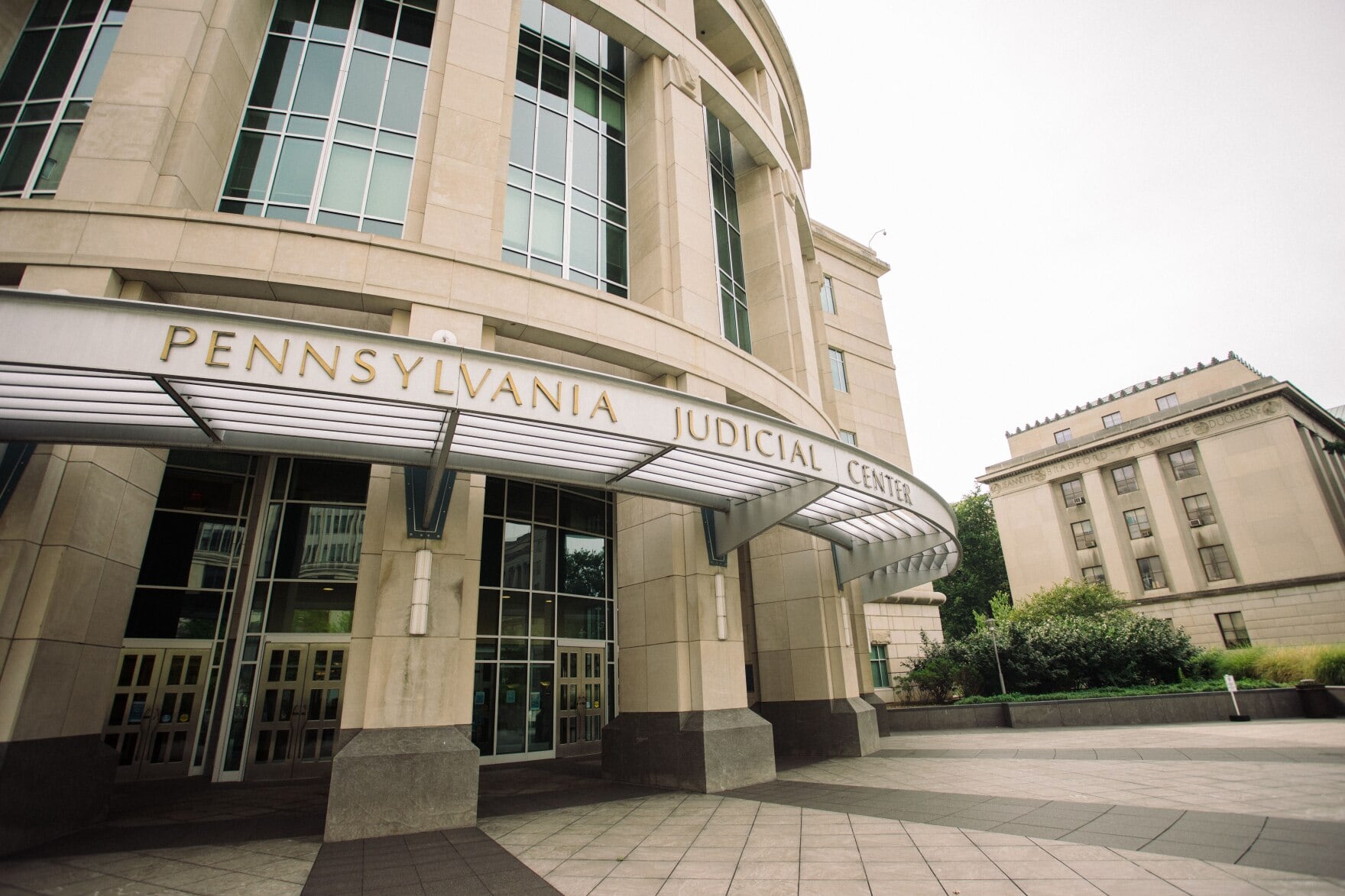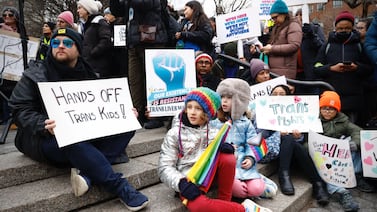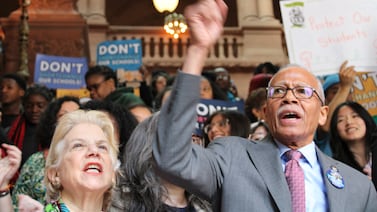Pennsylvania’s system of funding education is a “catastrophic failure” that deprives tens of thousands of the state’s students of the resources they need to succeed in college and life, an attorney for plaintiffs in the fair funding lawsuit said during closing arguments Thursday.
As the historic four-month-old trial comes to an end, attorneys for Republican legislative leaders repeated the argument they have maintained from the outset: that the state, with more spending per capita on education than most other states, clearly reaches the constitutional standard of providing a “thorough and efficient system of public education that meets the needs of the Commonwealth.”
“This is a constitutional law case,” said attorney Patrick Northen, representing House Speaker Bryan Cutler. “The question is not how to construct an ideal system no matter how much it costs, but whether the petitioners have met their burden to prove the current system is unconstitutional. They have not met that burden.”
Northen and Thomas DeCesar, representing Senate President Jake Corman, told Commonwealth Court Judge Renee Cohn Jubelirer that in any case, it is the role of the General Assembly, not the courts, to make policy decisions around such matters as education spending. Courts should not become a “super school board,” they said.
Northen said that more than 40% of state money is already spent on education, but it is not the only obligation the Commonwealth has, citing health, transportation, infrastructure, correctional institutions, environmental protection, and the judicial system itself.
The “principles” that the legislative leaders are fighting for, he said, is “to stand up for the rights of people” and defend “the American form of representative democracy. People speak through their elected representatives in the General Assembly, and it is the duty of the General Assembly to determine as a matter of public policy how to raise and spend money.”
They also reiterated that the “system of education” provided by the state goes beyond districts and includes charter schools, including cyber charters, for parents who are dissatisfied with their neighborhood schools.
And DeCesar said that the state has a lot of needs, including “plumbers, police officers” and other jobs that don’t need a college degree.
The case was brought in 2014 by six school districts, several families and two civil rights groups alleging that the wide disparities in resources and per capita spending among the state’s 500 school districts violates the “thorough and efficient” mandate as well as the equal protection clause. They want the state to invest more money in education and distribute it more equitably among districts.
The plaintiff districts – rural Panther Valley and Shenandoah Valley, William Penn, a suburb of Philadelphia, and three small cities, Lancaster, Wilkes-Barre and Greater Johnstown – say they all tax their own residents heavily but are still not able to raise enough money for services students need.
Plaintiff attorney Katrina Robson, presenting her recap of a trial that saw 40 witnesses and thousands of pieces of evidence, said the state had “politicized” education spending, making it over the years “subject to the push and pull of conflicting interests and adverse party platforms.” In 2011 the state cut $1 billion from education aid to districts, she said, “without conducting any studies” to determine whether those cuts would cause the state to fall below the constitutional standard.
Children in Pennsylvania’s under-resourced districts, who are disproportionately Black and Latino, have the “the same natural work ethic, the same natural intelligence, the same hopes, the same dreams,” as children in wealthier areas, she said.
Yet, in Pennsylvania, “in any given year,” 75% of Latino children will not reach proficiency in math, and 80% of Black, Latino and low-income children will fail to attain a college degree.
“In any given year, the number of Black children in the entire Commonwealth, all of them, sitting for the AP computer science exams, could fit in this courtroom,” she said. “Suggesting that this disaster is because children ignore opportunities allows us to place the blame for failure at their feet rather than the General Assembly’s. Or to constitutionally bless a system where wide swaths of children are failing to achieve, and where particular groups of underserved students bear the brunt of it.”
The wide variation in opportunity that Pennsylvania tolerates starts from the moment students entered school “and had their needs triaged, as if they were walking into a field hospital instead of a kindergarten. It was the system’s failure, not theirs.”
She cited studies showing that students from historically underperforming groups did far better if they attended well-resourced districts “that can afford the supports they need. These aren’t differences driven by a lack of student interest or poverty in the home. These differences exist because some districts … can provide what these students need to learn and others cannot.”
Northen and DeCesar continued to cast doubt on the relationship between spending and student outcomes, which has been a subject of debate throughout the trial, with experts on both sides of the issue called. While there was a consensus that education costs money, it cannot be determined how effective what DeCesar called the “colossal” increase sought by the plaintiffs would be.
He also questioned spending decisions already made by the plaintiff districts. Panther Valley, noted DeCesar, introduced a new set of courses in its high school, including broadcast journalism.
“There’s no requirement in the Pennsylvania constitution that districts provide opportunities in broadcast journalism,” he said.
He also noted that Wilkes Barre built a new high school, while William Penn chose to upgrade the lighting on its football field, and that some of the pictures of deteriorating building conditions shown by the plaintiffs had been fixed.
Attorney Sophia Lee, representing the executive respondents, which include the governor and Department of Education, largely backed the position of the plaintiffs that out-of-school factors impact learning, and that schools must, as she put it, “meet students where they are when they arrive at the doorsteps of our schools.”
Gov. Tom Wolf has sought to make education a centerpiece of his administration and has proposed a $1.5 billion increase in basic education funding for next year’s budget.
The next phase in the case is a series of filings and procedural motions that will continue through July 6, after which Jubelirer will make a ruling. The losing side will likely appeal to the state Supreme Court.
Dale Mezzacappa is a senior writer for Chalkbeat Philadelphia, where she covers K-12 schools and early childhood education in the city. She is a former president of the Education Writers Association. Contact Dale at dmezzacappa@chalkbeat.org.







